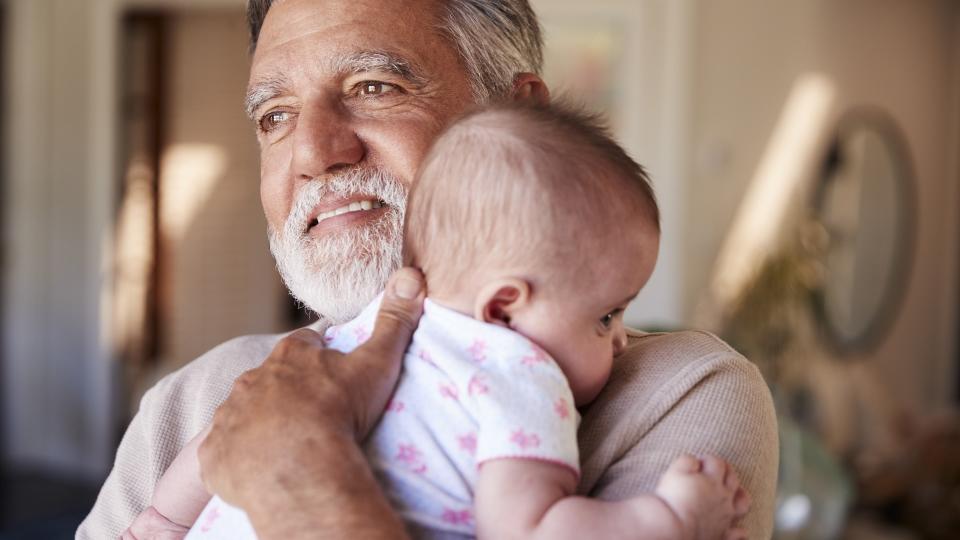How a Declining Birth Rate Will Affect Social Security and More Money Matters

The U.S. birth rate has been steadily declining for years, but fairly recently it has tipped over into an alarming category. The estimated “replacement fertility rate,” or the number of births required to maintain or increase the population, is 2.1 live births per woman. While the fertility rate was just above this limit in 2007, at 2.12, it fell all the way to 1.64 in 2020. In 2020 alone, the Centers for Disease Control and Prevention reported that American births fell by 4% to the lowest number of births since 1979. Analysts at the Brooking Institution predict this rate will remain below the replacement rate for the foreseeable future. But what does this mean for the average American consumer — or for those looking to retire on their Social Security payments? Here are some scenarios that may play out if the U.S. birth rate continues to decline.
See: Majority of Americans Will Not Receive Their Maximum Social Security Benefits
Economy Explained: Social Security: Understanding the Basics
Lowered Social Security Payments
The most likely outcome of a persistently declining birth rate is the reduction in Social Security payments. This is due to the way that the Social Security program is structured. Americans currently in the workforce fund Social Security payouts for those who are retired via Social Security taxes. The greater proportion of younger, active workers to older, retired workers, the more funding is available for Social Security payouts. With a declining birth rate, the number of older workers will overwhelm the number of people who are paying into the system, likely reducing the amount that could be paid out to each retired worker.
Related: Most Americans Fear Social Security Benefits Will Expire in Their Lifetimes
Increased Social Security Taxes
Another potential financial problem that could be caused by a declining birth rate is increased Social Security taxes. Rather than cutting the amount that is paid out to retired workers, the Social Security Administration may instead increase the amount of payroll taxes that current workers contribute to the system. This would keep the payout amounts fully funded for retirees. Workers already pay 6.2% of their income in Social Security taxes — up to $106,800 in income as of 2021 — in addition to 1.45% in Medicare taxes. Employers pay another 6.2% and 1.45% for those funds as the two groups split the bill. Self-employed workers pay the full 15.3% on their own. The SSA may choose to increase the total tax percentage or raise the income threshold to generate more revenue for Social Security.
Slowing Economy and Higher Prices
One long-term effect of a declining birth rate could be a slowing economy. As the population expands, the economy has a larger workforce, which produces more goods and services. The net result is a growing economy. By reducing the amount of available workers, the economy may slow, producing a greater number of recessions. With fewer workers, it might also be harder to keep up with demand for certain products, leading to supply shortages. This, in turn, would likely result in higher inflation if demand persistently exceeds supply.
Economy Explained: Inflation’s Ups and Downs: How It Impacts Your Wallet
Discover: When Social Security Runs Out: What the Program Will Look Like in 2035
Financial Collapse?
The U.S. is still projected to see a higher population by the end of this century. However, if birth rates continue to decline, that could change. While a smaller global population is no doubt good for the environment, it’s the composition of that population that could cause problems, as it will be skewed toward the elderly. With fewer younger workers compared to older retirees, U.S. tax revenue will fall, providing fewer funds for everything from highway repair to national security. The problem of elder care may also arise, as there won’t be enough younger people to fund elder care programs or physically take care of them. All of these factors carry their own ripple effects, which could amount to serious consequences for the economy as a whole.
More From GOBankingRates
Last updated: July 14, 2021
This article originally appeared on GOBankingRates.com: How a Declining Birth Rate Will Affect Social Security and More Money Matters

 generic
generic 